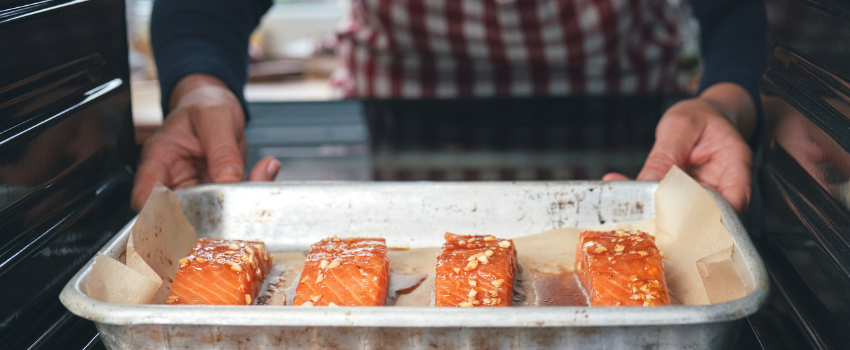
Inflammation is a natural process the body uses to heal and protect itself, but chronic inflammation can contribute to a host of issues—including those affecting urologic health. Although it's important to seek treatment for any symptoms, an anti-inflammatory diet—a way of eating focused on whole, nutrient-dense foods—has gained attention for its potential to reduce chronic inflammation and support overall health. Here, we'll explore the impact of anti-inflammatory diets on urologic health and how they can help with long-term care.
How Does Inflammation Affect Urologic Health?
Inflammation is often seen as a detriment to health, but it's not always bad. Good inflammation (e.g., in response to infection or injury) indicates that your immune system is working to help your body heal. However, chronic or unrevoked acute inflammation can disrupt your body's daily function—including the urinary and male reproductive systems. Inflammation can exacerbate urologic conditions like:
Urinary Tract Infections (UTIs)
Inflammation is the body’s natural response to bacterial infections in the urinary tract. Symptoms such as pain during urination, frequent urge to urinate, and lower abdominal discomfort result from this inflammatory process. Recurrent UTIs or persistent inflammation can damage the urinary tract lining and increase the risk of future problems.
Interstitial Cystitis
Inflammatory processes in the bladder lining contribute to interstitial cystitis, also known as painful bladder syndrome. Symptoms include chronic pelvic pain, increased urinary frequency, and urgency. Inflammation is also commonly thought to contribute to several other types of pelvic pain.
Kidney Diseases
Inflammatory conditions such as pyelonephritis (kidney infection) or glomerulonephritis (inflammation of the kidney's filtering units) can impair kidney function. Chronic inflammation may also increase the risk of permanent damage.
Urological Cancers
Chronic inflammation has been implicated in the development of certain urologic cancers, such as bladder cancer and prostate cancer. Persistent inflammatory signals can promote cellular changes that lead to malignancy.
Kidney Stones
Inflammation can occur in response to the formation of kidney stones. Additionally, stones can perpetuate inflammation, leading to pain and urinary obstruction. Inflammation can also change the chemistry of urine, which may increase the risk of future stone formation.
Overactive Bladder
Low-grade inflammation may contribute to the development of overactive bladder symptoms such as urgency, frequency, and incontinence. However, more research is needed on the direct relationship between the two.
Prostatitis
Prostatitis, or inflammation of the prostate gland, can cause pelvic pain, urinary difficulties, and sexual dysfunction. It can result from bacterial infections or be non-bacterial in origin (chronic pelvic pain syndrome). Chronic inflammation of the prostate may increase the risk of prostate cancer, though more research is needed.
Erectile Dysfunction
Inflammation can also significantly impact the onset and symptoms of erectile dysfunction (ED). Inflammation disrupts the complex physiological processes necessary for achieving and maintaining an erection and can damage the inner blood vessels.
What is an Anti-Inflammatory Diet, and How Can it Affect Urologic Health?
The role nutrition plays in your urologic health is quite substantial. Everything you eat has an impact on your urinary system and reproductive organs. An anti-inflammatory diet focuses on consuming foods that help reduce chronic inflammation in the body, which is often associated with various health issues, including heart disease, arthritis, and urologic conditions. The primary idea behind the diet is to eat whole, nutrient-dense foods with natural antioxidant qualities while limiting processed foods.
Although diet and nutrition can be an extremely personal journey, the key is prioritizing anti-inflammatory foods that work for you. If you're unsure how to create the best diet for bladder or prostate health, working with a registered dietician can give you great insight. Otherwise, you may want to experiment with different diets (e.g., the Mediterranean diet) and see how you feel. Regardless, always consult with a doctor before making changes to your diet.
Foods with Antioxidant and Anti-Inflammatory Properties to Add to Your Diet
An anti-inflammatory diet is a great option to help improve overall urologic health. But what does that mean, exactly? Which foods should you incorporate to create a balanced diet to maintain a healthy urinary system? The following foods can help prevent or reduce inflammation throughout the body:
- Berries (blueberries, strawberries, raspberries)
- Oranges, lemons, and other citrus fruits
- Cherries
- Pomegranates
- Leafy greens (spinach, kale, Swiss chard)
- Broccoli
- Brussels sprouts
- Sweet potatoes
- Carrots
- Avocados
- Olive oil (extra virgin)
- Nuts and seeds (almonds, walnuts, chia seeds)
- Brown rice
- Quinoa
- Oats
- Fatty fish (salmon, mackerel, sardines)
- Flaxseeds
- Algae-based omega-3 supplements (for plant-based options)
- Lentils
- Chickpeas
- Black beans
- Turmeric (with black pepper for better absorption)
- Ginger
- Garlic
- Cinnamon
- Probiotic-rich foods (yogurt, kefir, fermented vegetables)
If you've already been diagnosed with a urologic condition, talk to your doctor about specific dietary recommendations to help. For example, cranberries are often recommended for those who experience UTIs, while foods high in lycopene (e.g., tomatoes and watermelon) may reduce the risk of prostate cancer.
Foods to Avoid for Urologic Health
Some individuals may also find that certain foods are bladder irritants and trigger the onset of symptoms, disrupting daily life. Others may be prone to kidney stones, and a diet high in oxalate-rich foods (e.g., spinach) triggers their formation. It's essential to find what works for you. You may want to start trying to eliminate foods known to irritate the bladder, such as:
- Processed snacks (chips, pretzels)
- Canned soups
- Salty packaged meals
- Sugary drinks (sodas, energy drinks)
- High-sugar desserts
- Artificial sweeteners (aspartame, sucralose)
- Excessive caffeine (coffee, tea, energy drinks)
- Alcohol (beer, wine, spirits)
- Acidic foods (tomatoes, citrus fruits, carbonated drinks)
- Spicy foods (hot peppers, spicy sauces)
- Fried and fatty foods (French fries, high-fat meats, trans fats)
- Oxalate-rich foods (spinach, beets, rhubarb)
- Artificially flavored and colored snacks and candies
Remember, everyone is different, and different foods can trigger different responses. A holistic approach to urologic health can help you better identify what works for you.
Other Tips for Following an Anti-Inflammatory Diet
The foods listed above are great options to help you set up a balanced anti-inflammatory diet, but knowing the general guidelines can help you understand the "why" behind each. The following tips are typically considered with several popular anti-inflammatory diets.
Reduce Sugar Intake
Sugar, particularly refined sugar, can significantly impact inflammation in the body. High sugar intake can stimulate the production of pro-inflammatory cytokines, which are molecules that promote inflammation. These cytokines contribute to chronic low-grade inflammation linked to various urologic conditions. Sugar can also impact the urinary microbiome, which further impacts urologic health.
Consume Foods With Omega-3 Fatty Acids
Omega-3 fatty acids are an essential component of an anti-inflammatory diet due to their ability to reduce inflammation at the cellular level. These healthy fats have been shown to lower the production of several pro-inflammatory molecules, which can help mitigate the effects of chronic inflammation. Plus, omega-3 fatty acids are great for heart health.
Choose Whole Grains
Whole grains are an excellent choice for anti-inflammatory diets because they are rich in fiber, antioxidants, and essential nutrients that help combat inflammation. Unlike refined grains, which are stripped of their beneficial nutrients, whole grains retain their bran, germ, and endosperm, providing a steady source of complex carbohydrates and fiber. Diets high in fiber help regulate blood sugar and reduce insulin resistance, which are key contributors to inflammation.
Focus on Vegetables
Most diets recommend a good balance of fruits and vegetables, but focusing primarily on the latter in anti-inflammatory diets may be better. Since sugars can contribute to inflammatory markers, excessive fruit intake may not have the best response. However, sugar from fruit and natural sources is infinitely better than processed options, so don't be afraid to eat them. Instead, opt for low-sugar fruits like berries, cherries, and citrus.
Reduce Dairy Intake
Dairy can have varying effects on inflammation, depending on the individual and the type of dairy consumed. For some people, dairy products, especially those high in saturated fat, like full-fat milk, cheese, and butter, may trigger or worsen inflammation. This is particularly true for individuals who are lactose intolerant or sensitive to certain proteins found in dairy, such as casein and whey. If you notice any issues, talk to your doctor about getting tested for lactose intolerance and sensitivity.
Stay Hydrated
No dietary recommendation is complete without mentioning hydration at least once. Water is especially important in maintaining a healthy urinary tract, as it can flush out bad bacteria or calcium that contributes to kidney stone formation. Aim to drink at least eight glasses of water daily—between two and three liters. Ideally, the color of your urine should be somewhat pale or translucent yellowish. If you have any concerns about hydration, don't hesitate to contact your urologist.
While diet is a great tool for improving overall health, some conditions still require outside treatment. Byram Healthcare carries a wide selection of high-quality urologic supplies to help you manage symptoms. Browse our product catalog today or contact us today to learn more about living with urinary incontinence.




